About this course
Study at LJMU for this registered Specialist Community Public Health Nursing course with routes into School Nursing and Health Visiting.
To apply for this course, please visit the NHS jobs website.
- Study for a registered Level 7 qualification providing routes into School Nursing and Health Visiting
- Learn from expert nurses and visiting specialists on this contemporary programme which encompasses registration for practice
- Benefit from a curriculum praised for its enhanced practice perspective and outstanding fitness for practice from the NMC
- Have your professional competencies, as set out by the Nursing and Midwifery Council (NMC), assessed in theory and practice
- Experience 22 weeks of practical placements
- Available as a BSc (Hons) top-up degree (Level 6) for applicants holding a DipHE in Nursing or current registration with the Nursing and Midwifery Council
- Designed to develop clinical knowledge and skills and a true appreciation of collaborative working, this contemporary programme combines 50% theoretical study with 50% supervised practice in primary care settings.
- On completion of the SCPHN course you will be equipped to lead the development of future public health nursing services.
Practical experience is the prime focus of the programme, with academic research and theoretical perspectives informing practice innovation and development. You will devote 22 weeks to practical placements, gaining experience in various settings and with clients important to your current/potential area of responsibility.
During the course you will develop a comprehensive partnership approach, using your skills and expertise to examine and reflect on practice from a public health perspective. You will explore topics such as: health education, health promotion, health protection, community development, empowerment, advocacy, autonomy and informed choice. You will consider the wider determinants of health and focus on maximising health improvement and addressing inequalities within local contracting priorities.
The programme promotes a non-judgmental, anti-oppressive, respectful approach, valuing diversity and supporting freedom of choice. It encourages you to challenge accepted wisdom, equips you to deal with conflicting priorities and diverse health needs and enables you to support the empowerment of individuals, carers, groups and communities.
Course modules
Discover the building blocks of your programme
Your programme comprises all core modules to the total of 120 credits.
There are two versions of the Contemporary Issues in Public Health Nursing module; one with V100 Nurse Prescribing and one without. Depending on your current qualifications, you will be enrolled on the appropriate version of the module.
Further guidance on modules
Modules are designated core or optional in accordance with professional body requirements, as applicable, and LJMU’s Academic Framework Regulations. Whilst you are required to study core modules, optional modules provide you with an element of choice. Their availability may vary and will be subject to meeting minimum student numbers.
Where changes to modules are necessary these will be communicated as appropriate.
Core modules
Leadership for Specialist Practice
20 credits
20 credits
This module aims to enhance your skills and knowledge, enabling you to take a central role in the development of practice within your working environment.
It will also provide an opportunity for you to engage in debate and discussion, so you can identify your strengths and weaknesses as a leader within your organisation.
You will further consider how you can influence and inspire others at both a local, regional, national and international level.
Contemporary Issues in Specialist Community Public Health Nursing Part 1
20 credits
20 credits
This module provides a theoretical foundation to Specialist Community Public Health Nursing (SCPHN) and you will be able to build on its content to develop innovative and creative practice.
Students are required and facilitated to extend their theoretical learning to apply to their own core settings / clients, and this is reflected in the assignments. In addition there are route specific sessions with a health visitor or school nurse focus.
On completion of this module, you will be able to work with individuals, families and communities to improve, promote and protect their health and well being and reduce inequalities.
Risk and Vulnerability
20 credits
20 credits
This module aims to build safeguarding knowledge, enabling you to manage need across the safeguarding continuum for vulnerable individuals and client groups.
You will explore the underpinning theory of safeguarding practice, review the effective management of safeguarding, and consider the challenges to current practice and ways to initiate change.
The module provides an opportunity to critically consider contemporary safeguarding practice including prevention and early help, and propose service developments for improved practice.
Public Health
20 credits
20 credits
This module aims to provide you with the knowledge and skills to work as a public health practitioner in the community setting.
It introduces the discipline of public health and the use of evidence to improve services. You will also learn how public policy can influence health needs and service development. The wider determinants of health and health inequalities will be examined in detail. Principles and concepts of health promotion will also be covered.
Research for Specialist Practice
20 credits
20 credits
This module provides an overview and understanding of a broad range of qualitative and quantitative research methodologies and their application in the clinical and social care environment. It enables you to read, understand and critically analyse clinical and social care research literature. You will:
- examine a variety of research methods, used within the sphere of health and social care practice and development
- develop skills in critical evaluation of literature available within the field of health and social care development and clinical management
Optional Modules
Contemporary Issues in Specialist Community Public Health Nursing Part 2 with V100 Nurse Prescribing
20 credits
20 credits
This module builds on the specialist knowledge acquired in Contemporary issues in SCPHN Part 1. You will develop your knowledge and abilities in SCPHN practice.
This module will continue to provide a theoretical foundation to SCPHN practice and enable practitioners to develop innovative and creative practice. This module includes community practitioner prescribing.
This module is for students without an existing recordable prescribing qualification.
Contemporary Issues in Specialist Community Public Health Nursing Part 2
20 credits
20 credits
This module builds on the specialist knowledge acquired in Contemporary issues in SCPHN Part 1.
You will develop your knowledge and abilities in SCPHN practice. It will continue to provide a theoretical foundation to SCPHN practice and enable practitioners to develop innovative and creative practice.
This module is for students with an existing recordable prescribing qualification.
Professional accreditation/links
LJMU's PgDip Specialist Community Public Health Nursing programme is recorded with the Nursing and Midwifery Council (NMC).
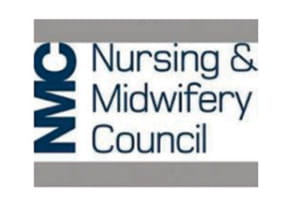
Your Learning Experience
An insight into teaching on your course
Study hours
You will study modules delivered two or three days a week with clinical placements interspersing the classroom learning blocks. Theory days can be used for activities such as non-module specific sessions, masterclasses, personal study and assignment preparation.
Teaching methods
At this level, independent study is essential and much of the learning is self-guided. You will be introduced to new concepts through formal lectures and tutorials, whereas workshops will offer you the opportunity for deeper investigation. Many sessions are co-taught with other community nursing programmes, enabling you to get a better understanding and appreciation of other healthcare specialists.
Formal lectures introduce concepts whilst tutorials and workshops offer the opportunity for deeper investigation. You will then be invited to present a paper at a group seminar which will be used as a starting point for peer group debate.
To support your independent study, course materials, presentations and handouts are available on the University's virtual learning environment.
How learning is monitored on your programme
To cater for the wide-ranging content of our courses and the varied learning preferences of our students, we offer a range of assessment methods on each programme.
Where you will study
What you can expect from your School
Based at the City Campus, the School of Nursing and Allied Health works with a wide range of health and social care organisations to design, deliver and evaluate a dynamic suite of postgraduate programmes. In addition to specialist facilities, you will find high quality meeting and seminar rooms and lecture theatres, the Avril Robarts Library which is open 24/7 during semesters plus a large cafe, IT facilities and social spaces.
LJMU's excellent educational and professional training facilities include 1.6 million practice suites which show a patient's journey from the home environment through to rehabilitation. We use the latest clinical equipment for simulations and developing clinical skills in child, adult and mental health nursing, paramedic practice, social work and midwifery. We also have purpose-built, soundproof booths with video camera and playback facilities.
Course tutors

Carmel Henshall
- Programme Leader
I am trained in the Solihull Approach parenting programme, and motivational interviewing which enables dynamic change within families. Both areas I teach to my SCPHN students with a hope to develop their critical thinking, compassion and a drive to fight for those who are disadvantaged in the communities they serve.
I am trained in the Solihull Approach parenting programme, and motivational interviewing which enables dynamic change within families. Both areas I teach to my SCPHN students with a hope to develop their critical thinking, compassion and a drive to fight for those who are disadvantaged in the communities they serve.
Prior to my transition to higher education, I worked mainly within accident and emergency departments and health visiting practice in Liverpool. Since joining LJMU 15 years ago, I have supported the Specialist Community Public Health Nurse (SCPHN) programme as module leader and currently as the programme leader. I am passionate about health visiting, and improving outcomes for children and families. I have an interest in infant mental health and I am keen to inspire my students to promote healthy relationships and attachment with their families. I also teach social workers and midwifes, I am an advocate for inter professional working.
Career paths
Further your career prospects
LJMU has an excellent employability record with 96% (HESA 2018) of our postgraduates in work or further study six months after graduation. Our applied learning techniques and strong industry connections ensure our students are fully prepared for the workplace on graduation and understand how to apply their knowledge in a real world context.
This Specialist Community Public Health Nurse programme is specifically designed to balance academic content and practical experience. It is geared towards securing motivating and rewarding employment as a Specialist Community Public Health Nurse (Heath Visitor or School Nursing). As a graduate you may go on to lead and develop future services, take a strategic job in public health or progress to further study.
You can learn more about the role of a health visitor and role of a school nurse on the NHS Careers website.
Fees and funding
Tuition Fees:
Fees
The fees quoted at the top of this page cover registration, tuition, supervision, assessment and examinations as well as:
- library membership with access to printed, multimedia and digital resources
- access to programme-appropriate software
- library and student IT support
- free on-campus wifi via eduroam
Additional costs
Although not all of the following are compulsory/relevant, you should keep in mind the costs of:
- accommodation and living expenditure
- books (should you wish to have your own copies)
- printing, photocopying and stationery
- PC/laptop (should you prefer to purchase your own for independent study and online learning activities)
- mobile phone/tablet (to access online services)
- field trips (travel and activity costs)
- placements (travel expenses and living costs)
- student visas (international students only)
- study abroad opportunities (travel costs, accommodation, visas and immunisations)
- academic conferences (travel costs)
- professional-body membership
- graduation (gown hire etc)
Funding
There are many ways to fund postgraduate study for home and international students. From loans to International Scholarships and subject-specific funding, you’ll find all of the information you need on our specialist postgraduate funding pages.
Please be aware that the UK’s departure from the EU may affect your tuition fees. Learn more about your fee status and which tuition fees are relevant to you.
There are two routes for funding for this course:
- Sponsorship (when a local NHS trust or organisation will sponsor you to train for the duration of the programme at LJMU)
- Secondment (for those currently employed by a local NHS organisation that will provide the practice placement whilst studying at LJMU).
Employer sponsorship
Some organisations and companies fund the cost of postgraduate studies for their employees as they recognise the value of having well qualified staff. Check out our courses and see if there are any on offer that could enhance your current career. Remember, employer support doesn't always have to be financial; it can take other forms too, such as flexible working arrangements, day release and time in lieu of study.
Funding sources
There are many ways to fund postgraduate study for home and international students. From Postgraduate Masters Loans to International Scholarships and subject-specific funding, you'll find all of the information you need on our specialist postgraduate funding pages.
Entry requirements
You will need:
Qualification requirements
Alternative qualifications considered
Minimum Academic Entry Requirement 120 Credits at Level 4 120 Credits at Level 5 120 Credits at Level 6 The Degree must normally be in a Health related area Non-graduates may, in exceptional circumstances, gain entry to the programme by virtue of a strong portfolio which provides evidence of significant achievement. These must meet both of the following criteria: Have a Diploma in H.E. in a related area (e.g. nursing or public health) and Written work equivalent to the standard of a First Degree, for example: Papers presented at conferences Publications Reports and innovative proposals Successful project management experience Professional Requirements A challenge assessment may be required. Must be a level 1 nurse on part one or part two of the NMC Professional Register Where a nurse or midwife has not yet received confirmation of registration from the NMC, LJMU must receive evidence prior to the student starting the programme that the student has successfully completed their pre-registration nursing or midwifery programme and that the student has made an application for NMC registration. If the student has not received registration within two months, the student will normally be withdrawn from the programme (NMC circular 6/2011) Students cannot be exempted from meeting any programme requirement (NMC circular 1/2011) Students must be seconded or sponsored by an NHS Organisation. Recruitment: A co-ordinated approach to recruitment is established between the local NHS organisations and Liverpool John Moores University Satisfactory references, Occupational Health clearance and DBS check are also required
How to apply
Securing your place at LJMU
To apply for this course, please visit the NHS jobs website.
Your university life
From accommodation and academic support to clubs and societies. Find out what LJMU has to offer.
Talk to our students
Connect with a current LJMU student for advice and guidance on university life, courses and more.
See what our students are saying
At LJMU we want you to know you’re making the right choice by studying with us. You can see what our students are saying about their experience with us through their reviews on the following websites:
Related Links
News and views
Browse through the latest news and stories from the university
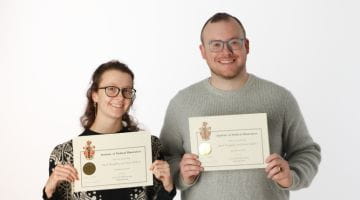
.png)
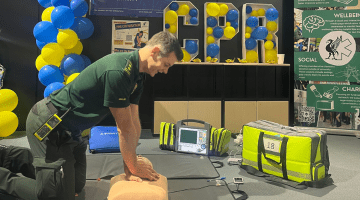

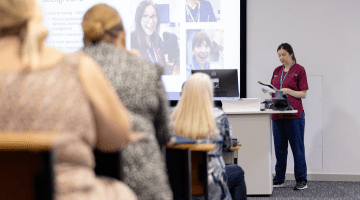


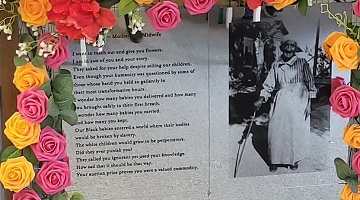

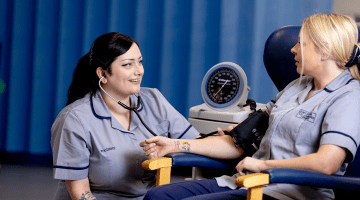
The University reserves the right to withdraw or make alterations to a course and facilities if necessary; this may be because such changes are deemed to be beneficial to students, are minor in nature and unlikely to impact negatively upon students or become necessary due to circumstances beyond the control of the University. Where this does happen, the University operates a policy of consultation, advice and support to all enrolled students affected by the proposed change to their course or module.









